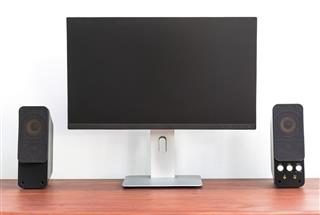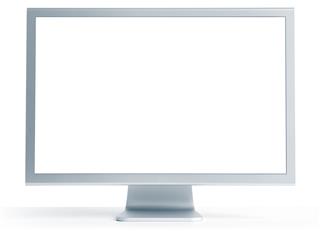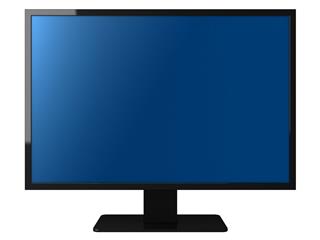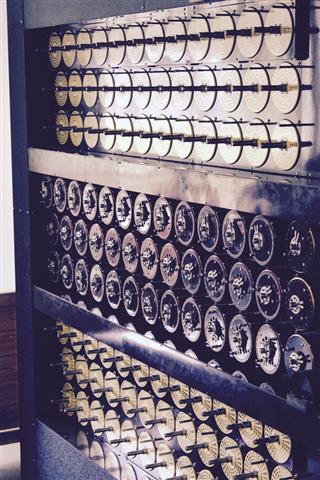
The rich history of computers can be traced back to 5000 years, and it is still evolving with research and innovation. The article below enlists some of the important computer inventors and their inventions.
Computer inventions have empowered the human civilization in a way that no other invention has ever done. And what should I say about the inventors who helped us to lead a more comfortable life? These geniuses have been the most gifted people to the world community who transformed the way we live and work today. Inventors of computers have been many and believe me, you simply can’t say that a single person contributed in the growth and development of this phenomenal technology. No doubt, computer inventions that date back to 2000 years ago can’t be compared with the ones of this century, but we simply can’t neglect the importance of even a wooden Abacus machine that laid the foundation of future computers.
Evolution of Computers
- There is a whole lot of confusion as to who invented the computer. There is no sure-shot answer to this question, as it completely depends on your definition of computers.
- Back in 3000 B.C., when Abacus, the simple calculating device was introduced in China, it was said to be the foundation stone for the concept of modern-day computers. But now, can you even equate Abacus to super computers? Probably not.
- So, in essence, when was the first computer invented, is a very difficult question to answer.
- In fact, the extent and depth in different types of computers makes it more complex to find an answer to the question about popular computers and their inventions.
- After Abacus, came in 1622 A.D., the slide rule, invented by William Oughtred, that was said to be another conceptual and thought provoking dimension to the information age development.
Famous Inventors and their Inventions
Charles Babbage: The Analytical Engine
He is considered as the “Father of the Computer,” who invented an analytical engine in 1822. However, he couldn’t actually build the analytical engine, but was only able to present it theoretically. His unfinished work was completed by scientists in 1930. His concept of analytical engine was quite similar to the concepts of modern-day computers that include subroutines and input devices. It certainly laid the foundation of modern-day computers.
Alan Turing: The Turing Machine
Although, he did not design any computer, Alan Turing, an English mathematician and computer scientist has been one of the most influential personalities in the field of computer science. He provided a platform for formulating the basic concept of algorithm and destined the Turing machine, that was able to test the intelligence of a machine. In fact, he pioneered in the field of artificial intelligence. Today’s, CAPTCHA code test on Internet and computers has evolved from Turing’s ideas.
Konrad Zuse: The Z Series Computers
The German engineer, Konrad Zuse, in 1936, invented the first electrical binary programmable computer – the Z1, Z2, and Z3 were also introduced by Zuse in 1939 and 1941 respectively. Unfortunately, Zuse’s efforts were destroyed during second world war.
John Vincent Atanasoff & Clifford Berry: Atanasoff-Berry Computer (ABC)
Developed in the war phase of 1942, Atanasoff-Berry Computer (ABC) was the world’s first fully electronic digital computer. Its inventors, John Vincent Atanasoff & Clifford Berry shared the relationship of a professor and a student. John was an America electronics engineer while Clifford his student.
The US Army: ENIAC
Financed by the US army and developed by scientists John Presper Eckert & John W. Mauchly, in 1946, the Electronic Numerical Integrator and Computer (ENIAC) is considered to be the first mainstream digital computer ever made. In fact ABC and ENIAC fought a legal battle till 1973, when ABC was finally declared to be the 1st digital computer. ENIAC was mainly built for US army research laboratory.
Gordon Bell and Ken Olson: PDP (Programmed Data Processor)
They invented the PDP in the year 1960s. Gordon Bell designed the i/o system of the PDP-1. With time, there have been several versions of this machine, i.e., PDP-4, PDP-5, PDP-6,and PDP-11. As a part of the DEC (Digital Equipment Corporation), Gordon Bell later designed the VAX, which is DEC’s best computer.
What followed in years after 1950 is an amazing history of computer development. Further developments in the computer field led to the invention of transistor (by John Bardeen, Walter Brattain & Wiliam Shockley in 1956), integrated circuits (1959) and the computer processors by the iconic Intel. Then came the brilliant Bill Gates and the legendary Steve Jobs who changed the computer history.
In fact, internet history is also an integral part of the history of computer development as both can only coexist. You must have realized after reading this article that it is quite difficult to name any person for all computer growth. Computer development saga, in essence, is a magnificent example of impressive developments through re-invention, research, and innovation.








